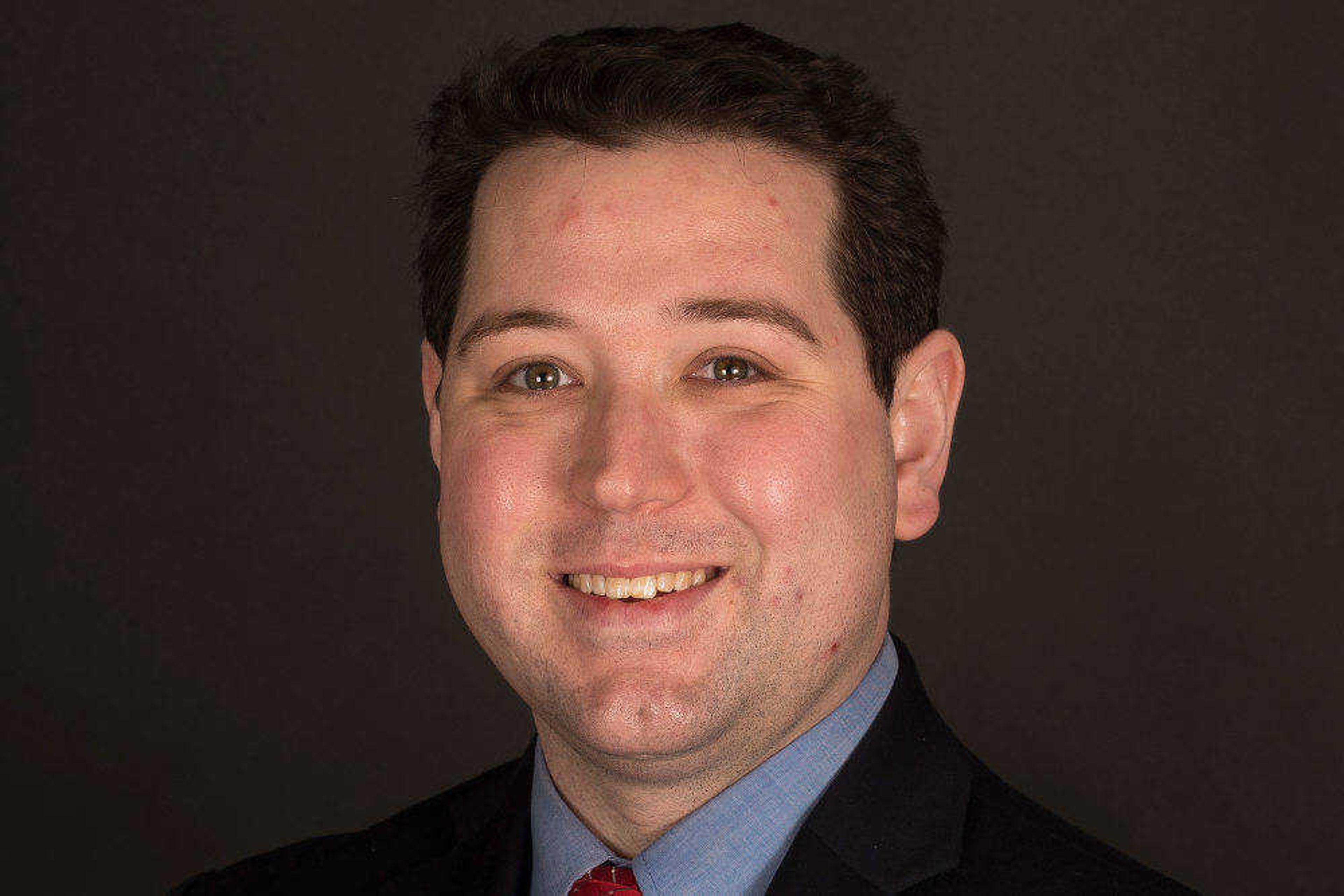Cape man remembers Iwo Jima 75 years later
On Feb. 19, 1945, American forces invaded the Pacific island of Iwo Jima for what became an important five-week battle during World War II. But on Tuesday -- the day we spoke for this interview -- there was another anniversary on the mind of 93-year-old Walter James Wright. It was Feb. 25, 1945, when he was wounded during the Battle of Iwo Jima...
On Feb. 19, 1945, American forces invaded the Pacific island of Iwo Jima for what became an important five-week battle during World War II.
But on Tuesday -- the day we spoke for this interview -- there was another anniversary on the mind of 93-year-old Walter James Wright. It was Feb. 25, 1945, when he was wounded during the Battle of Iwo Jima.
Seated near his wife of 70 years, Wanda, in their Cape Girardeau home, Wright told me to never doubt the power of Almighty God.
"I was in a foxhole there. Almighty God told me to look out," he said. "I didn't see the enemy fire the shell, but I saw it about 15 feet after it left the mortar. I followed it in the air, and when it reached its peak -- it's kind of like a baseball coming out in center field. When it reached its peak it started to drop, it started to drop right in the hole. I made a dive to get out of the hole. And when I did, the shell landed in the hole and killed a guy that was in the hole, but it wounded me."
Wright was rushed to the ship hospital, then to the island of Saipan before heading back to Hawaii and then the U.S. mainland. It was the end of his military career, which in some ways had only just begun.
Just two days before, Wright saw U.S. Marines take Mount Suribachi and raise the American flag -- a scene captured in one of the most iconic photos in American history. A touching memory of patriotism.

"To know that you saw the famous flag with your own eyes, you sure felt good when you saw it flying up there," he said.
Wright, who received the Purple Heart, said being wounded at Iwo Jima was not the worst day of his military career. Instead, he referred to the Battle of Saipan where on the first day of battle 160 out of 220 men in his company were killed.
Wright enlisted in the Marines at the age of 16, forging his mother's signature to serve in the armed forces.

"My mother and my dad got a divorce when I was 5 years old, and I lived with my dad. And that's the reason I didn't forge his name," he said with a laugh.
According to Wright: Once a Marine, always a Marine. He proudly showed a framed photo taken in 2006 of him shaking the hand of then-Marine Commandant James T. Conway, a Southeast Missouri State University graduate.
Wanda recalled her husband telling Gen. Conway that the men in his "Fightin' Fourth" Marine Corps Division would never believe the two met. Conway said they would, giving Wright a Marine coin which he now displays with the photo.

"There's a lot of difference on rank," Wright said. "He's a Commandant of the Marine Corps, and I am a private first class. There's a big spread there, wasn't there?"
Post Marine Corps, Wright returned to his home in Kennett, Missouri where he met and married Wanda. He became a journeyman electrician and Wanda earned degrees in education, ultimately serving as an educator at Washington School in Cape Girardeau.
Wright's love for the Marines hasn't faded. He talked about how serving today is more difficult than years ago.
"They're giving us a lot of credit for World War II, but the poor kids over there right now are the ones I feel sorry for," he said. "If they go out on the battlefield line and they shoot the wrong person, they may send them back ... and send them to jail. And how do you know who's your enemy and who's not your enemy when they're out in front of you?"
For years he met with the men in his "Fightin' Fourth" Division, the last full gathering held in Cape Girardeau in 2012. Listening to him talk about the division, there's a special pride in his voice. For years each member would host a reunion in his hometown. While they no longer gather together and some have died, Walter and Wanda cherish the memories.
"The group of men were so close," Wanda said. "It was just like going to see your family."
To get a feel for the camaraderie, check out a video interview between Dr. Frank Nickell and the six men.
Wanda said some years back they received a call from someone who said he wanted to meet the man who saved his father's life. Wright had saved the individual's father, who was pinned down in a ditch. Wright helped get him to safety, the two to never meet again. But the man's children wanted to thank the man who saved their father's life.
These are the stories more people should know. Walter James Wright is not a name you hear on a regular basis. But the stories of he and his fellow service members are important. They have helped shape American history. And their battlefield courage is to be celebrated.
Lucas Presson is assistant publisher of the Southeast Missourian.

Connect with the Southeast Missourian Newsroom:
For corrections to this story or other insights for the editor, click here. To submit a letter to the editor, click here. To learn about the Southeast Missourian’s AI Policy, click here.











